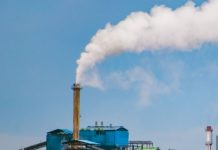Tokyo: Japanese trading giant Mitsubishi Corp. is set to invest more than 100 billion yen ($690 million) in the construction of one of the world’s largest “green” hydrogen production plants in the Netherlands, reported Asia.nikkei.
Green hydrogen, generated through the electrolysis of water using renewable energy, offers a carbon-free alternative to traditional fuels. This ambitious venture aims to tap into the significant potential of green hydrogen as a next-generation, environmentally friendly energy source.
With a focus on refining expertise for commercialization, particularly in production and supply, Mitsubishi intends to leverage the advancements in green hydrogen development in Europe, which is at the forefront of such initiatives, to facilitate global expansion.
Envisaged to be executed by Eneco Diamond Hydrogen, a joint venture involving Mitsubishi and its subsidiary Eneco—a prominent Dutch renewable energy company—the construction of the electrolysis plant is scheduled to commence in 2026, with hydrogen production slated to begin in 2029. The anticipated annual capacity of 80,000 tonnes is poised to be nearly 30 times larger than the current world’s largest facility.
Drawing upon Eneco’s significant offshore wind farm in the Netherlands, the project will harness electricity from renewable sources to power the electrolysis process. Eneco plans to distribute the produced hydrogen through its retail electricity network and supply it to various manufacturing and power entities in Europe via pipelines.
Most hydrogen production currently relies on electricity sourced from fossil fuels, presenting a hurdle to the widespread adoption of green hydrogen. Notably, the production cost of green hydrogen ranges from 3 to 8 euros ($3.28 to $8.74) per kilogram, surpassing the 1 to 2 euros per kg for hydrogen derived from fossil fuels. Mitsubishi aims to address this cost disparity through mass production, aligning with its objective to make green hydrogen more economically viable.
Against the backdrop of the European Union’s ambition to increase its annual green hydrogen capacity to 10 million tonnes by 2030, Mitsubishi’s strategic investment underscores the growing importance of sustainable energy solutions. This move may also catalyze increased activity among Japanese businesses involved in hydrogen development, such as Asahi Kasei.
Furthermore, other Japanese entities, including Itochu and Osaka Gas, are set to invest in Danish hydrogen developer Everfuel, contributing to a project aiming to produce 3,000 tonnes of green hydrogen annually in Denmark. Meanwhile, oil company Eneos and trading house Sumitomo Corp. are collaborating with Malaysian counterparts to produce green hydrogen from hydropower in Malaysia by 2030.












